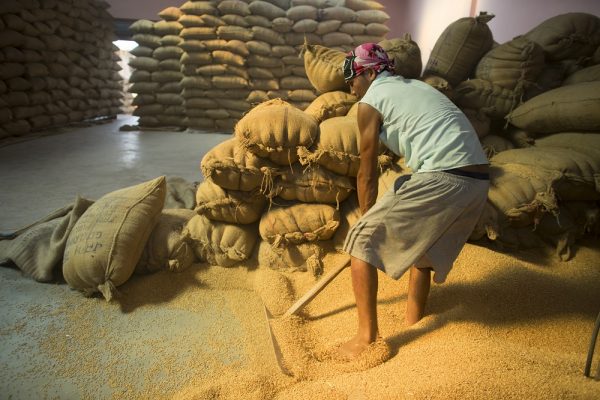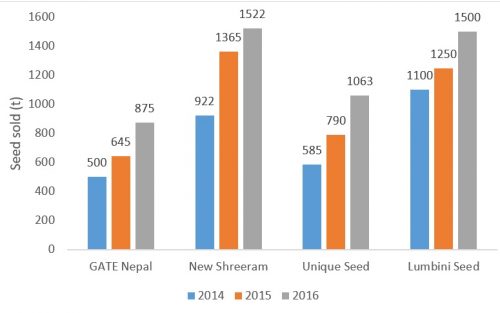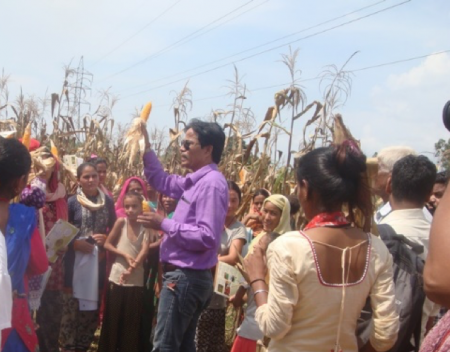
KATHMANDU, Nepal (CIMMYT) – Four Nepalese seed companies are showing signs of significant growth, with seed sales increasing nearly 60 percent since 2014.
About 70 percent of Nepal’s population is employed in the agriculture and forestry sector, accounting for 34 percent of the country’s gross national product. While farmers still face many challenges in accessing new technology, market opportunities and other inputs, Nepal’s seed industry is beginning to grow thanks to new investments in seed company operations and facilities. There are currently 20 locally registered seed companies that provide about 50 % of the nation’s formal seed supply system.
The four companies – New Shreeram, Lumbini Seed Company, GATE Nepal Pvt. Ltd. and Unique – are part of a group of 10 Nepalese companies that have worked with the International Maize and Wheat Improvement Center (CIMMYT) through the Cereal Systems Initiative for South Asia (CSISA) since 2014 to improve their marketing and sales strategies, business development, product range and quality.
This growth is notable in Nepal’s emerging cereal seed industry, which is composed primarily of small- to medium-scale enterprises that often lack business plans, have relatively low operating capital and have limited processing and storage facilities. These companies produce open-pollinated crop varieties, which are then released and registered by Nepal’s National Seed Board.
Half of the companies working with CIMMYT have so far been able to secure financial resources of up to $200,000 each from Nepal’s Ministry of Agricultural Development.
“These additional funds have allowed the seed companies to expand their facilities to include seed storage buildings, processing plants and laboratories,” said Upadhaya. “They have also included newly released iron- and zinc-rich varieties in their product lines.”
Some companies have also introduced innovative incentives for their producers by bearing the transportation costs of seed from the farmers’ fields to the company stores as a way to boost sales, according to Upadhaya.
The Seed Entrepreneurs’ Association of Nepal (SEAN) – the seed companies’ umbrella organization – has increased its membership from 600 in 2014 to 1,000 in 2016, formed three regional chapters and contributed a unified voice to discussions around agricultural policies of interest to the seed industry, said Laxmi Kanta Dhakal, SEAN Chairman.

As a result of these new technologies and investments, seed sold by these companies increased significantly and reached marginal areas of the country through new development networks and private sector traders.
New contractual agreements have since been signed between seed companies, informal groups and cooperatives for the production of seed. As outlined in Nepal’s Agricultural Development Strategy (2015-2025), these initiatives will help promote inclusive growth and an effective seed sector in Nepal.
CIMMYT launched the CSISA in 2009 to promote durable change at scale in South Asia’s cereal-based cropping systems. CIMMYT operates rural “innovation hubs” in Bangladesh, India and Nepal to increase the adoption of various resource-conserving and climate-resilient technologies, and to improve farmer access to market information and enterprise development. Learn more about CSISA’s impact here.

 Capacity development
Capacity development 
